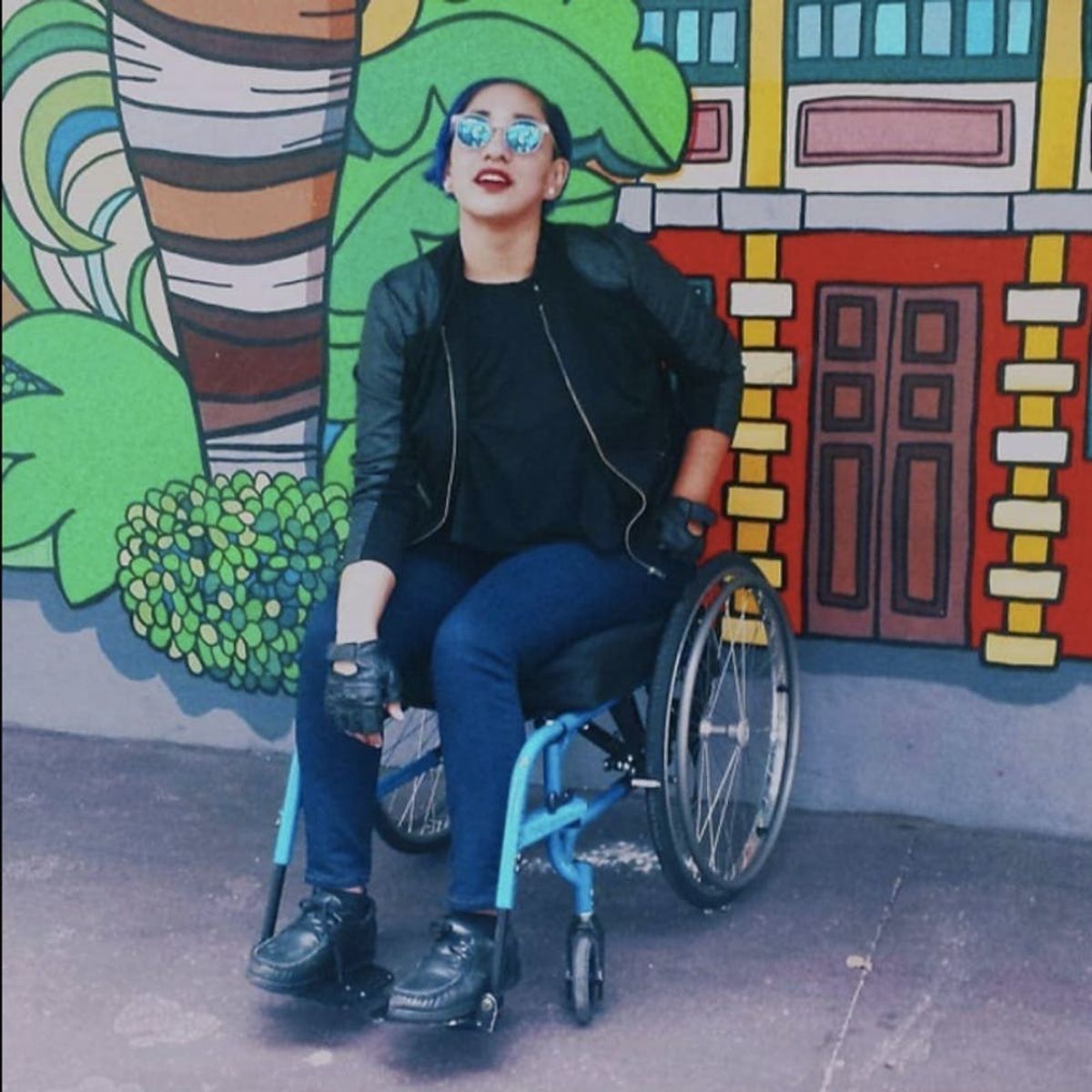The 27-year-old YouTuber chats about disability, body image, and making space for feminists of color.
Here’s What YouTuber Annie Elainey Wants You to Know About Being Disabled


Every Body celebrates inclusivity and the representation of human beings in every shape and form.
Annie Segarra was 23 when she began feeling a sharp pain in her feet whenever she walked. Within a year, she was using a wheelchair to get around. At 26, she received a diagnosis of Ehlers-Dahlos syndrome and came to grips with the reality of being a person with a disability.
Now 27, Segarra is known to her thousands of YouTube followers as Annie Elainey, where she’s become a sensation by vlogging about sensitive topics surrounding disability and mental health. She launched the channel to chat about body image and her recovery from an eating disorder, a self-love journey that prepared her for her diagnosis last year. Throughout her quest to unlearn toxic thoughts and develop a healthy and positive appreciation for her body, she’s been documenting every moment on video.
She launched the channel to chat about body image and her recovery from an eating disorder, a self-love journey that prepared her for her diagnosis last year. Throughout her quest to unlearn toxic thoughts and develop a healthy and positive appreciation for her body, she’s been documenting every moment on video.

Just getting to a diagnosis was a trial in itself. Segarra suspected that she likely had EDS a year before her blood test results and subsequent diagnosis, but faced gaslighting from multiple doctors — that is, doctors who weren’t taking her reported symptoms seriously.
“It was such a traumatizing experience and no one should have to go through that while seeking answers about their health conditions,” she says. “Now, there is a good corner of my activism which is EDS awareness; it is not so much a rare disease as it is rarely diagnosed so I want people to be well informed about it.”
And yet Segarra still confronts a lot of misinformation about her disability. It’s the assumptions that get her down: People think she’s sick because she’s not trying hard enough to get well, that she’s faking her illness because her degree of mobility varies day-by-day, that she’s not positive enough and that’s why she’s ill.
Which is exactly why she spends a lot of time vlogging about topics like Things I Wish People Knew About Being Disabled and Casual Ableist Language.
One simple way to be an advocate, Segarra advises, is to nix language that equates disability with anything negative. Words like “r*tard,” “stupid,” and “dumb” makes it seem like having an average intellect makes someone better. Words like “lame” do the same for physical ability, and “crazy” for mental illness.

Unfortunately, being a woman with an opinion on the internet is a dangerous occupation these days.
Segarra has gotten plenty of misogynistic comments about her appearance. Vlogging about her dislike of rape jokes and ableist language has made her vulnerable to attacks that she’s suppressing free speech.
How does she cope?
“More often than not I’ll ignore, maybe delete and block because I don’t want needless cruelty occupying space,” she says. “I don’t delete things that are actually criticisms or respectful disagreements but profanity, name-calling, toxic, and hateful ideologies yes; my life experience has led me to a place where I do not tolerate that kind of abuse.”
In the meantime, Segarra performs self-care by digesting plenty of movies and shows (she recently marathoned Being Human on Netflix) and dreaming about financial independence. She’d love to earn enough to support her family and hire an assistant to help her with the avalanche of messages plus all the editing and organizational work her job requires. The end goal would be to focus on her two on-the-go book projects and collaborate more with people from her community.
For now, she hopes her viewers create more space for people like her: disabled, LGBTQ+, women of color. Segarra asks able-bodied, cis, white women to seek out content created by alternative groups, to share it, to engage with it, to actively unlearn any negative thoughts or language they have.
“Make sure that if you don’t see us around, you make some noise for us,” says Segarra, “Seek our communities, if we weren’t invited in a diverse setting demand to know why not. Demand to know why a particular space wasn’t made accessible for us.”
In other words, she says, “Pass the mic.”
Who’s your favorite body-positive or disabled YouTuber? Tell us @BritandCo.
(Photos via Annie Segarra/Instagram)



















